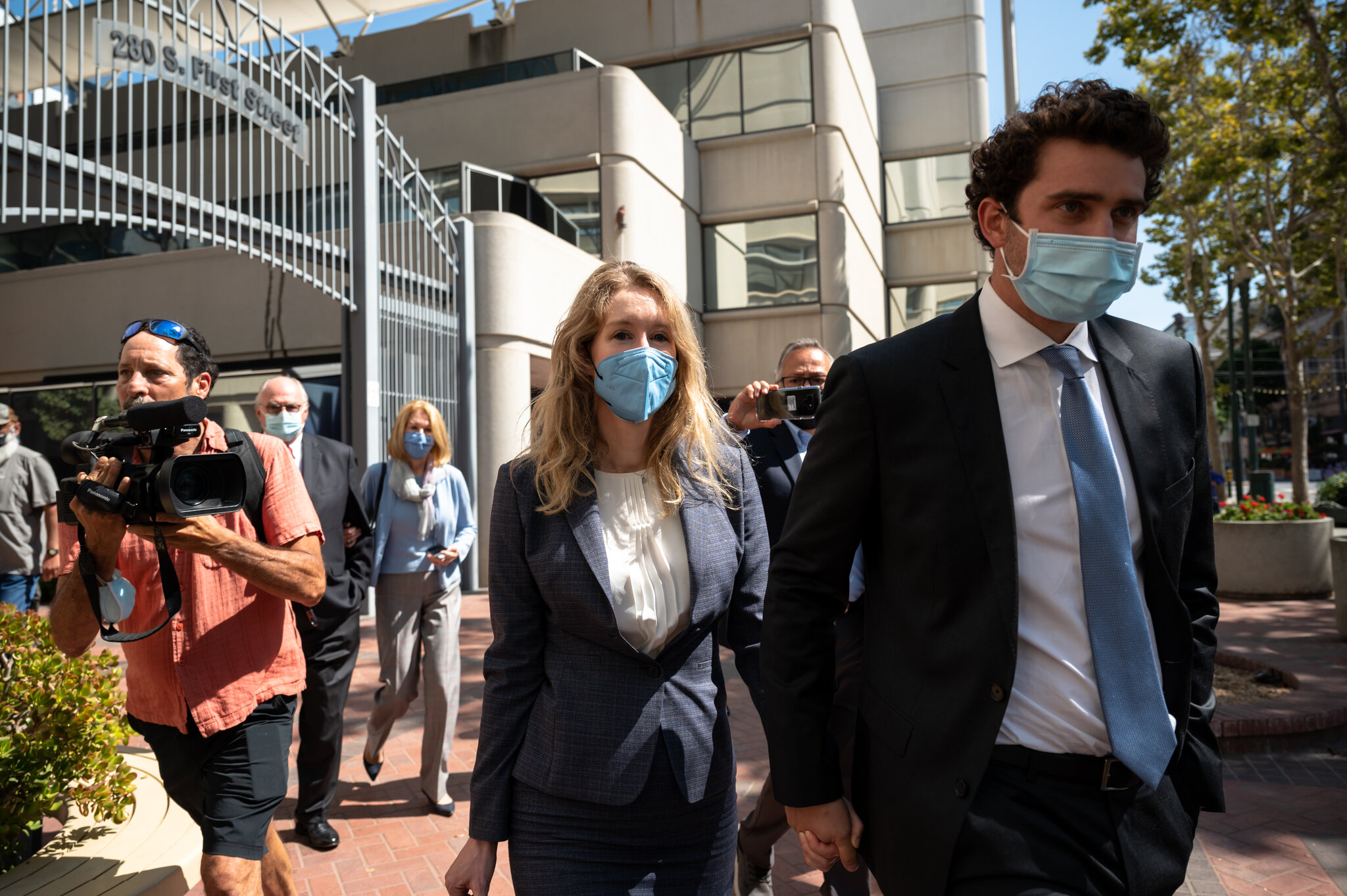In the Elizabeth Holmes trial, the jury asked the judge to play recordings of the Theranos founder on an investor call on the third full day of deliberations in the wire fraud case of the Silicon Valley entrepreneur.
- According to evidence during the trial, despite years of trying, they never used Theranos‘ technology on combat battlegrounds or military helicopters.
- During her deposition, Holmes stated that she did not assert that the business’s gadgets were being utilized in military helicopters but was “trying to convey” that the company was working on a technology that they might use for medevac.
- Holmes, the founder of the now-defunct Theranos blood-testing company, is charged with 11 counts of wire fraud and conspiracy to conduct wire fraud:
- Prosecutors sought to establish that she deceived investors and patients about the company’s technology throughout the trial, which began in September and lasted more than three months.
- “During the trial, prosecutors pressed Holmes to confess that she was the CEO and founder of Theranos and that she was in control and accountable for the company: Holmes, who has pleaded not guilty, spent seven days on the stand defending herself.
- She said she behaved in good faith and did not purposefully deceive her partners or clients.
- After days of persuading the jury that she acted in good faith, Elizabeth Holmes wraps up her testimony.
The portion of tape they requested was some of the most critical evidence in the trial since it showed Holmes, in her own words, asking direct questions about the company’s finances and development strategy from her investors.

The tapes, including one in which Holmes described Theranos‘ cooperation with pharmaceutical corporations and the military, were played for the jury on Thursday. “Several years ago, we discovered that we had built an infrastructure that may make it feasible to eliminate phlebotomy or the drawing of blood from the arm,” she explained on the call.
According to evidence during the trial, despite years of trying, they never used Theranos’ technology on combat battlegrounds or military helicopters.
Former employees said that despite Theranos’ claims that their technology could do hundreds of tests with a single finger prick of blood, many procedures still required traditional blood samples from a patient’s arm.
The prosecution’s case hinges on Theranos‘ depiction of its collaboration with the military. During her deposition, Holmes stated that she did not assert that the business’s gadgets were being utilized in military helicopters but was “trying to convey” that the company was working on a technology that it might use for medevac.
However, some investors claimed that Theranos assured them the gadgets were being deployed in military planes:
In the recording, Holmes says, “We’ve built the business around partnerships with pharmaceutical companies and our military contracts where we could deploy our framework in one for helping accelerate clinical trials. And in the other for extreme-use-case situations in trauma and other areas where there was a very compelling value proposition to build out our test menu and infrastructure to get to this point.”
On Thursday, the jury looked to be paying close attention to the recordings, with some taking notes and at least one craning his neck to hear more clearly.
As jurors made notes, Holmes sat stick-straight, as she had done throughout the trial, blinking repeatedly and keeping her eyes focused in the same direction. She seemed calmer in the corridor after that, smiling with her mother and companion as they proceeded toward an elevator.
Holmes, the founder of the now-defunct Theranos blood-testing company, is charged with 11 counts of wire fraud and conspiracy to conduct wire fraud:
Prosecutors sought to establish that she deceived investors and patients about the company’s technology throughout the trial, which began in September and lasted more than three months.
Questions from Holmes‘ investors concerning changes in the value of their shares, the business’s market cap, further funding for Theranos, and Holmes’ authority over the firm were part of the conversation in court on Thursday.
On the phone, one individual commented, “She has a good hold on the organization.” “Let there be no misunderstandings, both in terms of how she conducts it and in terms of the law and contracts.”
During the trial, prosecutors pressed Holmes to confess that she was the CEO and founder of Theranos and that she was in control and accountable for the company.
Holmes, who has pleaded not guilty, spent seven days on the stand defending herself. She said she behaved in good faith and did not purposefully deceive her partners or clients. On Tuesday, the panel of eight men and four women requested the judge if they might take the 39-page jury instructions home to consider. No, the court said.
Elizabeth Holmes finishes her evidence after days of persuading the jury that she behaved in good faith. Theranos and Holmes had previously been lauded as shining examples of Silicon Valley genius, with the company claiming to be able to run hundreds of blood tests with just a few drops of blood drawn from a patient’s fingertip.
Theranos, on the other hand, fell apart because media and regulatory probes revealed that the company’s technology was more limited than it claimed.
Check Whyd for more news.